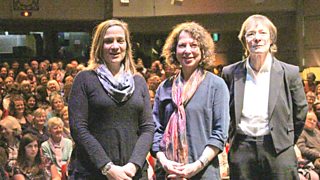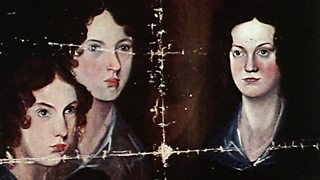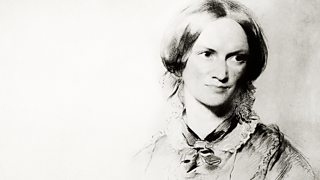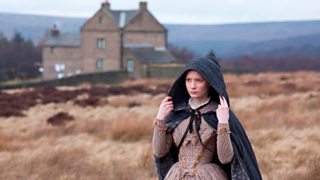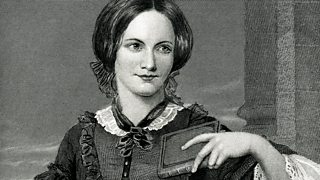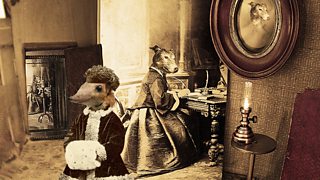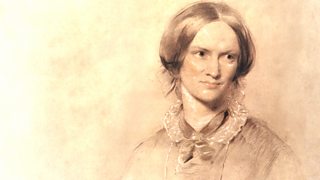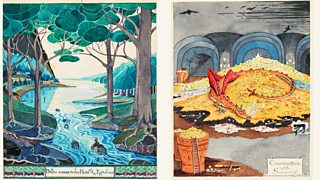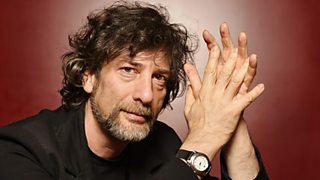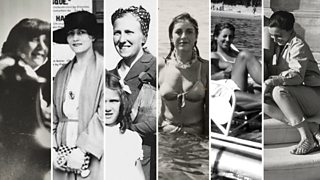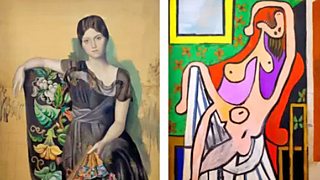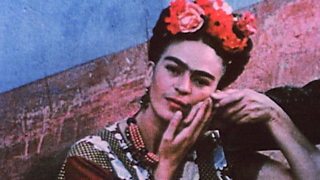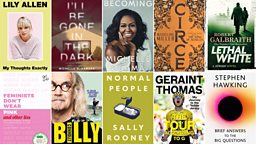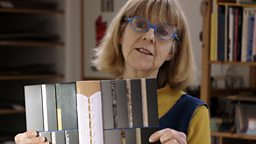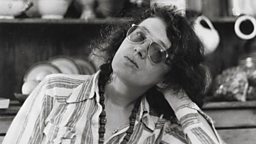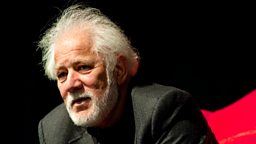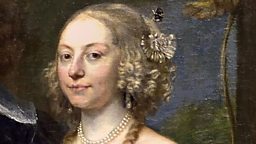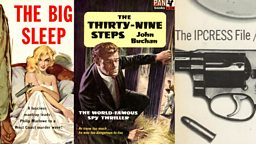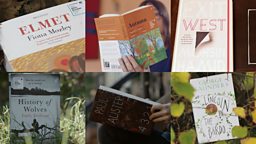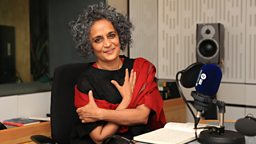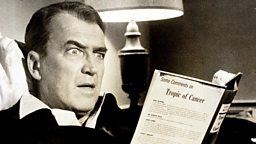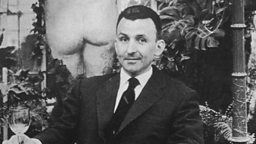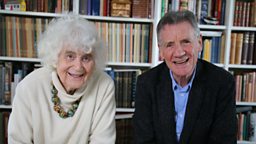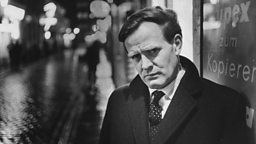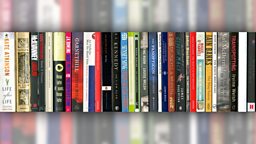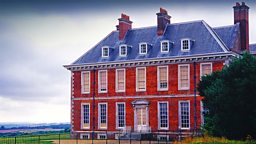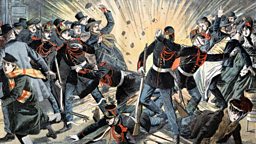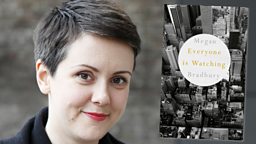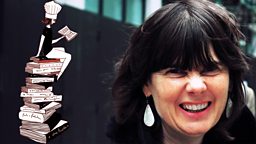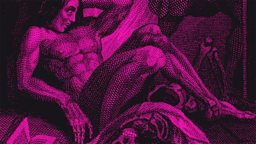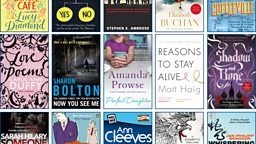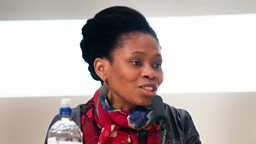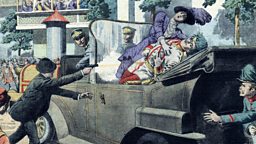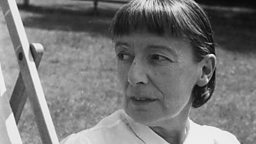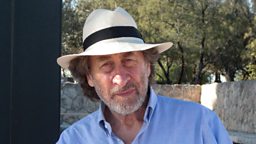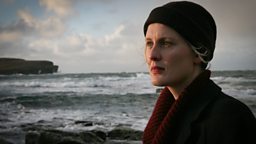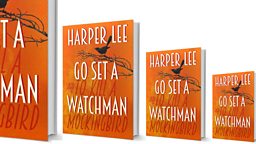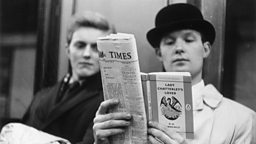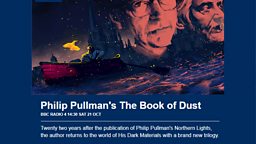Weird, windswept and wonderful: Charlotte Bront毛 at 200
11 April 2016
To mark the 200th anniversary of Charlotte Brontë’s birth, her biographer CLAIRE HARMAN – author of the critically acclaimed Charlotte Brontë: A Life – reveals how she got under the skin of the unique and pioneering writer. We've also rounded up the rest of the 主播大秀’s celebration of all things Brontë on radio, television and iPlayer.
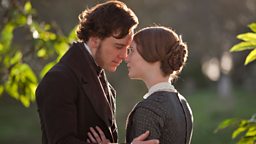
Big anniversaries focus attention on our cultural icons, so it’s no surprise that the bicentenary of Charlotte Brontë’s birth on 21 April this year is reminding readers of just how weird and wonderful her life was: brought up motherless in a windswept parsonage on the edge of the Yorkshire moors and struggling against the odds to get her own and her sisters’ novels into print.
The story of how the Brontë sisters, led by Charlotte, produced three classic books in a single year – Jane Eyre, Wuthering Heights and Agnes Grey – is almost better than those Gothic page-turners themselves and gripped the nation when the first biography of Charlotte appeared in 1857, written by her friend Elizabeth Gaskell.
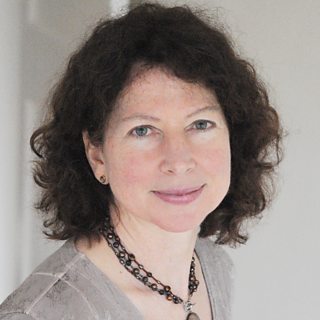
But the success of Gaskell’s myth-making, coming so quickly on the heels of Brontë’s death in 1855, might have had the effect over the years of muffling certain aspects of what she had been trying to say.
Charlotte Brontë perhaps became famous too fast. Jane Eyre was an instant bestseller in 1847 and has never been out of print; it's been read by countless people and made familiar to even more people through plays, films, prequels, sequels - with general belovedness and nation's-favourite status for the author.
But that sort of fame forms a carapace around a book, and I think when people are asked to look at the text afresh, and think about the author behind it, a lot of surprising things come out.
Jane Eyre ceases to be a distant Victorian classic, but a woman whose messages about equality and independence have yet to be taken on board properly. Her famous speech to Rochester, "I am no bird, and no net ensnares me", was never meant to be just a motto on a commemorative mug.
You can't blame readers for being massively diverted by Jane and Rochester's epic love story and the gripping melodrama surrounding it of dark secrets, mad women and creepy old houses on fire.
But there's another kind of fire in Jane Eyre, too, of righteous anger, stringent morals and passionate advocacy. It's the inflammatory nature of Jane's 'rebel slave' outbursts against authority and rage at her own powerlessness that scandalised some of the novel's first readers in 1847 and made them mark the book down as dangerously subversive.
Jane Eyre reproaches our complacency about social and sexual politics on almost every page
No one would think of censoring it now, but the flames linger on.
Rereading the book, I was struck not just by Jane's almost unquenchable sense of injustice but by things like the use of the word 'degradation' to describe her feelings at receiving Rochester's presents when they go on what should be a jolly shopping trip before their wedding.
In an age which claims to have solved certain issues such as equal rights and promotes 'empowerment' through striptease, Jane Eyre reproaches our complacency about social and sexual politics on almost every page.
One way to keep the message of a book alive is to put it back into the context of the author's life, which is what I hope to have done with my new biography, Charlotte Brontë: A Life.
Brontë's tragic but triumphant story has fascinated readers from Gaskell onwards, but I tried to put aside the idea of her as 'a famous writer' and think of Brontë as much as possible from her own angle, unknown and (most of her life) unpublished, increasingly frustrated by the prospect that lay ahead of her, of hard work (as a governess and teacher), genteel poverty and wastage of genius.
Over three years, I tried to get under the skin of this troubled young woman, go to the places she went to, read the books she read, study her manuscripts and pore over her possessions.
Every researcher will find something different in such resources; I found a person who both longed to be 'forever known', but clung to anonymity in order to achieve it, a woman much more concerned about truthfulness than personal fame and someone who felt compelled to put into words her own terrible sufferings (most notably her bereavements and her agonising unrequited love) as being the only way to deal with them.
That's why I don't believe that Jane Eyre is a novel that will ever sit quietly in its classic status or lose its power to disturb people. And if Jane's fieriness of spirit seems to belong more to our own times than to hers, it could be because her ardour came straight from her author, and Charlotte Brontë intended to keep us listening.
Claire Harman’s Charlotte Brontë: A Life is out now in paperback, published by Penguin Books. Claire will also be taking part in a special in London on 21 April.
Bront毛 season on the 主播大秀
-
![]()
主播大秀 World Service: With writer Tracy Chevalier and biographer Claire Harman, recorded in a packed 主播大秀 Radio Theatre
-
![]()
主播大秀 iPlayer: Martha Kearney, novelist Helen Oyeyemi and journalist Lucy Mangan travel to Haworth Parsonage, the home of Charlotte and her sisters
-
![]()
主播大秀 iPlayer: First transmitted in 1977, Joan Bakewell visits Haworth in Yorkshire, home of the Bront毛s
-
![]()
主播大秀 Radio 4: Claire Harman's intimate biography of one of Britain's greatest ever novelists, read by Hattie Morahan
-
![]()
主播大秀 iPlayer: Cary Fukunaga's 2011 film adaptation, starring Mia Wasikowska and Michael Fassbender
-
![]()
主播大秀 Radio 4: Series of stories celebrating the bicentenary of Charlotte Bront毛's birth, by Isy Suttie, Amelia Lowdell and Elizabeth Kuti
-
![]()
主播大秀 Radio 4: Drama by Charlotte Cory, charting five momentous visits Charlotte Bront毛 made to London
-
![]()
主播大秀 Radio 3: Charlotte Bront毛's true identity revealed through her powerful and poignant letters
More from Books
-
![]()
Seven must-read novels by female authors.
-
![]()
Tolkien's own illustrations of his fantasy universe.
-
![]()
The author picks his three favourite works of science fiction.
-
![]()
Judge these books, and their genres, by their covers.
More from Books
-
![]()
Seven must-read novels by female authors.
-
![]()
Tolkien's own illustrations of his fantasy universe.
-
![]()
The author picks his three favourite works of science fiction.
-
![]()
Judge these books, and their genres, by their covers.
More from 主播大秀 Arts
-
![]()
Picasso鈥檚 ex-factor
Who are the six women who shaped his life and work?
-
![]()
Quiz: Picasso or pixel?
Can you separate the AI fakes from genuine paintings by Pablo Picasso?
-
![]()
Frida: Fiery, fierce and passionate
The extraordinary life of Mexican artist Frida Kahlo, in her own words
-
![]()
Proms 2023: The best bits
From Yuja Wang to Northern Soul, handpicked stand-out moments from this year's Proms
